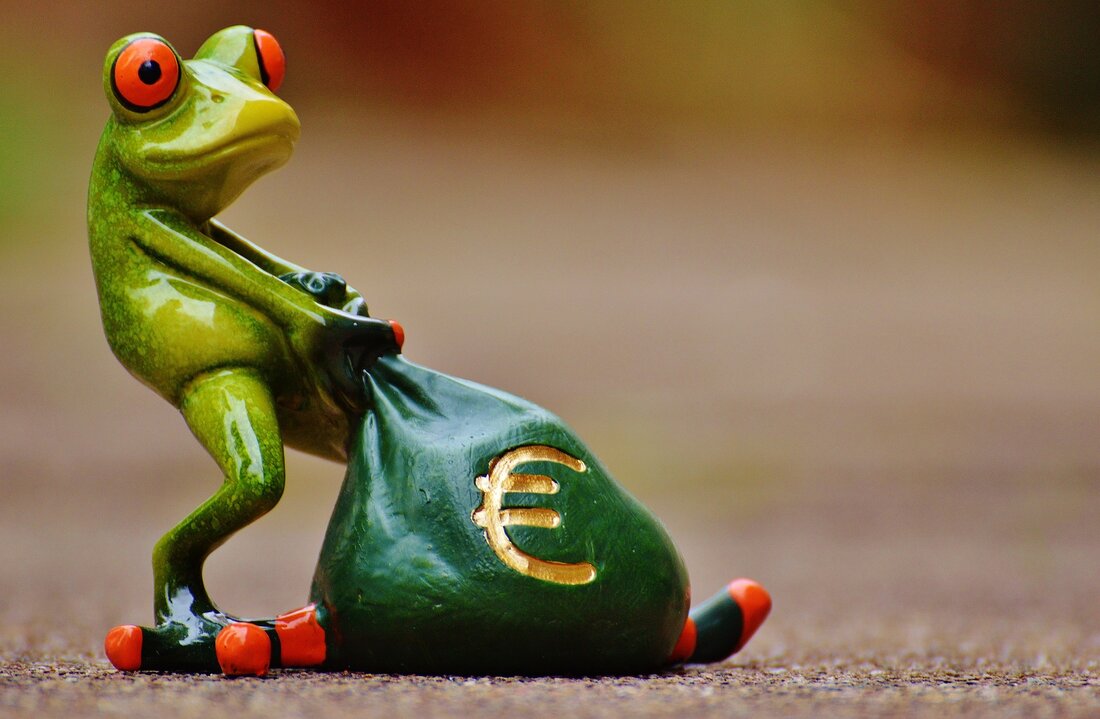Weak euro and rising inflation: difficult times for consumers
The European common currency remains weak. What is stimulating exports is making life increasingly more expensive for consumers in Germany, and increasing inflation is reinforcing this development. The euro is currently more of a curse than a blessing, and there is currently no end to the decline in sight. But what does this development mean specifically for consumers and what options are there to protect their assets and prevent them from further loss of value? Inflation destroys savings Anyone who currently keeps their money in the bank can almost see the gradual loss of value; as inflation progresses, the euro is gradually losing value. Given the lack of alternatives,...

Weak euro and rising inflation: difficult times for consumers
The European common currency remains weak. What is stimulating exports is making life increasingly more expensive for consumers in Germany, and increasing inflation is reinforcing this development. The euro is currently more of a curse than a blessing, and there is currently no end to the decline in sight. But what does this development mean specifically for consumers and what options are there to protect their assets and prevent them from further loss of value?
Inflation wipes out savings
Anyone who currently keeps their money in the bank can almost see the gradual loss of value; the euro is gradually losing value due to increasing inflation. Given the lack of alternatives, quite a few people decide to invest in stocks or other assets. Cryptocurrencies are also becoming increasingly popular in this context.
And cryptocurrencies are gaining momentum not only as an investment object, but also as a real means of payment. Although Germany is still a little behind compared to other countries, more and more companies and retailers here are also accepting payments in Bitcoin and Co., both online and offline. Although not every cryptocurrency is suitable for actual use as a means of payment, these digital currencies still represent, at least in theory, a conceivable alternative when it comes to making payments without relying on the current one ECB financial policy to be instructed. Cryptocurrencies develop independently of the performance of real currencies.
Cryptocurrencies are more of an alternative investment than a means of payment
The biggest problem with most cryptocurrencies is and remains the high volatility, i.e. the high price fluctuations, which can occur both upwards and downwards. As long as this problem is not resolved, digital currencies will not be an option for the general public as a daily means of payment, but they will be an alternative investment. If you look at the performance of many large cryptocurrencies, there are definitely signs of a long-term increase in value, even if there are always big ups and downs in between. However, this does not protect consumers from the currently rising costs.
These mainly consist of items such as rent, energy, food and transport. Since this situation has been going on for some time, many people's financial reserves have already been used up. In the event of urgent purchases or sudden financial bottlenecks, it is often no longer possible to fall back on your own financial cushion.
Interest rates for consumer loans at their highest
For many in such a situation, taking out a loan is the only sensible way to bridge the gap in order to make urgent payments promptly. However, interest rates for consumer loans are at an all-time high, which makes a precise comparison of the offers available from different banks and financial service providers more important than it has been for a long time. Online portals, such as Loan comparison24, make such a comparison possible in no time at all and eliminate the need to manually compare individual offers.
Conclusion
It can be assumed that consumers cannot expect any improvements to the current situation in the short term. Although it is difficult to make precise forecasts, the situation will ease again in the long term. Until then, consumers with low incomes in particular will be severely affected by the high price levels. If you want to keep your savings safe, you should look for sensible alternatives to fixed-term deposits and current account accounts.

 Suche
Suche
 Mein Konto
Mein Konto
